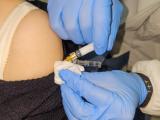In its oversight of roughly $35 billion in 65,000 external biomedical research awards in 2023, the US National Institutes of Health (NIH) didn't consistently track unused funds or act when financial and progress reports from grant recipients were late, a new Government Accountability Office (GAO) report says.
These findings, released late last week, could compromise the NIH's ability to detect misspending and ensure that its grants are awarded in appropriate amounts, the authors said.
Agency couldn't provide recent staffing data
In compiling the report, the GAO reviewed agency policies, documents, and data through 2023, checked NIH monitoring data, and interviewed federal officials, including those from four NIH institutes chosen based on factors such as funding, staffing, and mission. The chosen entities were the National Cancer Institute, the National Institute on Aging, the National Institute on Minority Health and Health Disparities, and the National Eye Institute.
GAO requested, but NIH could not provide, information about the effect of recent administration actions on oversight staffing levels.
The NIH is the largest public funder of biomedical research in the United States, and more than 80% of its budget funds external research on health-related topics. The report includes the 25 NIH institutes, centers, and offices that fund external research.
The $35 billion in grants awards to universities and other institutions in 2023 was an increase of nearly 30% from 2014, after adjusting for inflation. In 2023, the NIH also hired about 400 people, a 20% increase over 2014.
But in February 2025, President Donald Trump ordered agency leaders to prepare to fire staff on a large scale, which happened in the ensuing weeks, along with massive cuts to NIH-funded research. In March, the "GAO requested, but NIH could not provide, information about the effect of recent administration actions on oversight staffing levels," the report said.
NIH agrees with recommendations
As part of its oversight of grant awards, the NIH reviews recipients' financial and progress reports to, for example, monitor progress and determine whether recipients have a plan to address problems. But the GAO found that the NIH doesn't always close out awards when recipients don't comply with policy by filing a final report within 1 year of project completion.
Without an informational resource or tracking requirement, NIH cannot be assured that it is implementing carryover practices effectively and maximizing its funding for higher-value projects.
Nearly 1,000 final progress reports (about 0.2% of awards made from 2014 through 2024) were delinquent. "NIH has made recent efforts to better ensure timely closeout, but it has not identified or addressed the factors that contribute to late reports," the authors wrote. "As a result, NIH cannot ensure that it is holding recipients accountable and identifying misspent funds."
Certain grants can carry over unspent funds from one budget period to the next. "If NIH determines that some funds are not needed, it can restrict the recipient's ability to automatically carry over funds in the future," the report said.
Moreover, the NIH hasn't developed an informational resource to help recipients make the best decision about carryover. Nor does it require institutions to track even large unused balances, which are common. "Without an informational resource or tracking requirement, NIH cannot be assured that it is implementing carryover practices effectively and maximizing its funding for higher-value projects," the GAO noted.
Based on the report findings, the GAO recommended that the NIH identify and address factors behind delinquent final financial and progress reports in revised guidance, develop an informational resource for managing unspent funds, and require NIH institutes and centers to monitor unused balances across their award portfolios. The NIH agreed with all three recommendations.



















